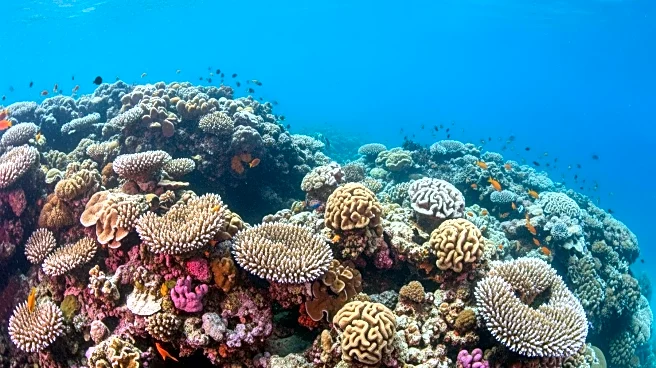What's Happening?
President Ferdinand Marcos Jr. of the Philippines has condemned the designation of Scarborough Shoal as a 'nature reserve,' a move he claims violates Philippine sovereignty. Speaking at the ASEAN-US Summit
in Kuala Lumpur, Marcos criticized unnamed actors, widely understood to be China, for imposing this status on the shoal. He argued that this action infringes on the traditional fishing rights of Filipinos, which are protected under international law, including the 1982 United Nations Convention on the Law of the Sea (UNCLOS) and a 2016 arbitral ruling. The shoal, located 120 nautical miles off Zambales, has been a critical fishing ground for local communities.
Why It's Important?
The designation of Scarborough Shoal as a 'nature reserve' by China is a significant geopolitical issue, as it challenges the sovereignty of the Philippines and affects regional stability in the South China Sea. The shoal is strategically important and has been a point of contention between China and the Philippines since 2012. President Marcos's condemnation highlights the ongoing disputes in the region and the potential for increased tensions. The situation also underscores the importance of international law and the role of global powers, such as the United States, in supporting regional allies and maintaining peace and security in the South China Sea.
What's Next?
The Philippines is expected to continue advocating for a Code of Conduct in the South China Sea that aligns with international law. President Marcos has expressed a commitment to defending the country's maritime rights and has called for peaceful and sustainable seas. The Philippines, along with the United States and South Korea, plans to co-chair a workshop on combating illegal fishing, which is part of a broader regional initiative. The international community will likely monitor China's actions closely, and further diplomatic engagements are anticipated to address the ongoing disputes.









